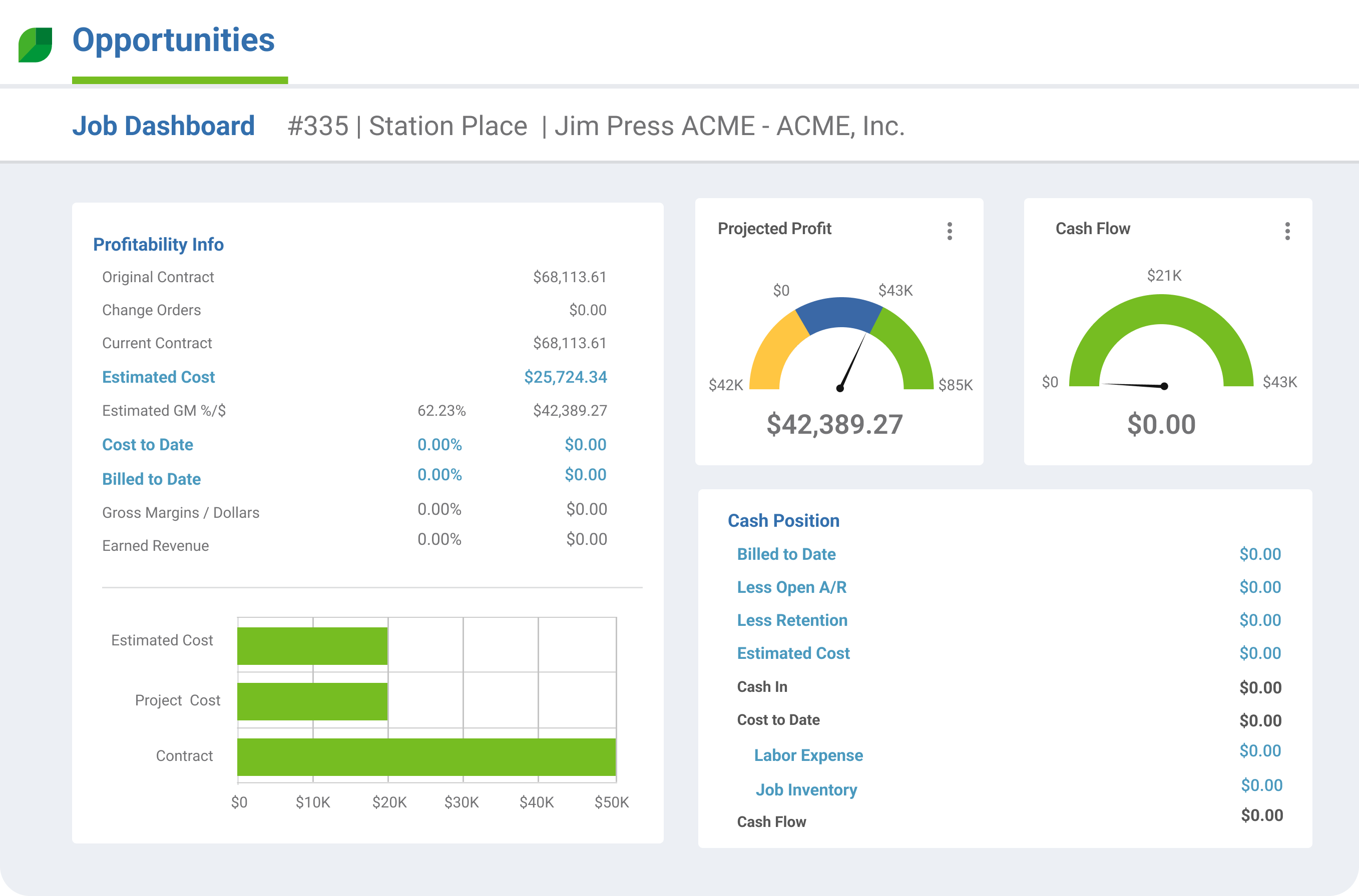Table of Contents
Table of Contents
- 1. Define your target market and ideal customer
- 2. Create a professional online presence
- 3. Build a positive online reputation
- 4. Attend local networking events
- 5. Establish partnerships
- 6. Offer special promotions
- 7. Implement direct marketing campaigns
- 8. Participate in trade shows
- 9. Follow up on leads
- Scale up your commercial cleaning business
In the competitive landscape of cleaning companies, the key to sustained profitability and growth is securing repeat business while actively generating a consistent flow of new leads.
Successful lead acquisition and conversion rely on effective marketing practices that build trust with potential clients and differentiate the company from its competitors.
Ready to grow your cleaning company? Use these nine lead-generation strategies for obtaining commercial cleaning clients.
1. Define your target market and ideal customer
Before making marketing investments for your cleaning business, define your target market and ideal customer.
For example, is your company expanding from residential cleaning into commercial properties? Are you adding to your existing office cleaning clients with health care janitorial services, which require following strict protocols set by OSHA? Or are you looking into retail and restaurants?
Don’t forget to consider your staffing hours. Many commercial businesses require cleaning to occur overnight or on weekends.
Narrow in on location, too. That way, you can target paid marketing strategies within an appropriate radius. Once you know your target market and ideal client, you can send the right message at the right time.
2. Create a professional online presence
Potential cleaning clients expect businesses they hire to have a professional online presence, which includes a sharp website, active social media accounts, and dazzling customer reviews.
Your company’s website should feature:
Clean design
Easy navigation
Clear service and pricing information
Ensure your company name and contact information are prominently displayed. Incorporate high-quality images of your team and completed projects to showcase your expertise.
Fill out social media profiles on platforms like Facebook and LinkedIn, and enhance your SEO presence with business page directory listings on:
Angi
Yelp
Google Business Profile
Being visible on search engines—especially for a small business—makes it easy for potential clients to find your services, generating inbound leads interested in scheduling a first cleaning.
Consider allocating a portion of your marketing budget to Google Ads to ensure your business appears at the top of search results and Facebook ads to put your posts in the feeds of your target demographic.
Social media platforms are a great way to share customer testimonials, promotions, and new services with your customer base.
3. Build a positive online reputation
This step goes hand-in-hand with creating your online presence. It’s not enough for customers to be able to find you online. You must also maintain a positive brand image.
→ Reviews, testimonials, and before-and-after photos help build credibility and trust.
Ask your existing customers to write testimonials you can feature on your website or leave a review for your company on your social channels.
Respond to all reviews, positive or negative.
✔ For positive reviews, thank the customer and showcase your appreciation.
✔ For negative reviews, share your intent to resolve the customer complaint and follow through.
Responding to online reviews is an easy way to show potential customers your business is responsive and stands by its work.
4. Attend local networking events
Business owners can build connections, pass out business cards, and secure more word-of-mouth referrals and commercial cleaning contracts at local networking events.
Explore online platforms like Meetup and Eventbrite to find relevant events or visit local business association websites. Seek out industry-specific gatherings or broader business networking events that commercial property managers, facility managers, business owners, and other service providers might frequent.
Join your local chamber of commerce for access to exclusive events, mixers, and workshops specifically designed for businesses in your area.
Of course, you want to nail your elevator pitch and earn business, but networking is about building relationships. Active listening and a genuine interest in helping other companies succeed are essential to long-term partnerships and your business growth.
5. Establish partnerships
One goal of professional networking should be establishing partnerships that open the door to expanded service offerings and client bases. Examples include:
Property management companies: They oversee multiple properties requiring consistent cleaning services, offering a steady stream of work and the potential for long-term contracts.
Event management businesses: Collaboration offers post-event clean-ups or regular maintenance opportunities, expanding your client base to event spaces or large venues.
Commercial real estate agents: They often need move-out and move-in cleaning services on commercial properties and can introduce you to new business owners.
Complementary service companies: When customers request services you don’t offer, like landscape maintenance or carpet cleaning, you can refer them to your partner network, and vice versa.
Collaborating with businesses with a similar target audience enables cross-promotion and customer referrals by accessing each other's customer base and attracting new clients through bundled services or integrated solutions.
6. Offer special promotions
Draw in new customers with special offers and promotions. Utilize your partnerships by offering special rates to referred or shared customers. Consider giving percentage discounts for first-time customers or volume discounts for current clients with multiple locations.
→ A promotion won’t work unless people know about it. Communicate any promotions on your website, social media pages, and paid advertising.
Follow up with new customers acquired through the promotion, thanking them for their business to turn them into repeat customers.
7. Implement direct marketing campaigns
Your business marketing plan should include direct marketing—any marketing that relies on direct communication or distribution to individual consumers.
→ The personalized approach often results in higher engagement and better response rates.
Direct marketing campaigns include:
Targeted mailers sent to specific industries
Door hangers to be distributed in certain areas
Referral programs
Personalization is key in direct marketing. Tailor your materials to address the specific needs of different industries or businesses. For example, targeted mailers sent to hospitals should highlight the importance of hygienic standards and compliance with healthcare regulations.
8. Participate in trade shows
Beyond local networking events, industry trade shows provide ample opportunities to network with fellow entrepreneurs and promote your cleaning business.
→ Attend at least one show a year for professional development and business networking.
Learn about the latest trends at cleaning industry-specific trade shows hosted by organizations like the International Sanitary Supply Association. Or build partnerships at complementary industry trade shows, like the Building Service Contractors Association International’s Contracting Success conference.
New technology can improve efficiency when collecting leads, such as retrieval systems or digital forms for attendees to provide their contact details. Offer incentives for attendees who sign up or express interest in your services.
9. Follow up on leads
Prompt follow-up drives lead conversions. Aim to contact your new leads within a week of acquiring them, whether through trade shows or digital marketing. This helps ensure they remember your company.
Organizing and prioritizing leads after a trade show or marketing campaign is essential. Categorize leads based on interest, potential value, or specific cleaning needs. This segmentation allows you to prioritize and personalize follow-up efforts.
Leverage a CRM platform to organize leads and automate communication. Aspire’s integrated CRM provides full pipeline visibility so commercial cleaning companies can view, manage, and maximize cleaning job opportunities from one place.

Scale up your commercial cleaning business
As you grow your customer base and operations, optimizing efficiency and automating processes through janitorial business management software that scales with your company becomes crucial.
With a CRM for lead management and tools for scheduling, estimating, invoicing, and more, Aspire’s business management software provides the functionality and control commercial cleaning business owners need to streamline operations and grow profits.
Check out the Aspire blog for more commercial cleaning business tips for success.










